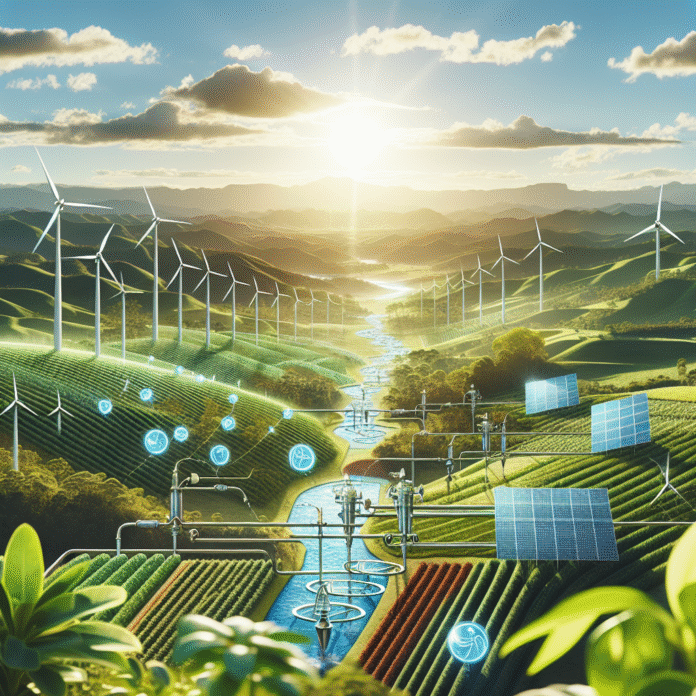Clean Energy Boosts Sustainable Irrigation in Brazil
Advancements in Clean Energy and Sustainable Irrigation in Brazil
The integration of clean energy sources is revolutionizing sustainable irrigation practices across Brazil. As the country faces challenges related to water scarcity and agricultural efficiency, innovative solutions powered by renewable energy are gaining traction.
Renewable Energy Sources Driving Change
Brazil is endowed with rich natural resources, making it a leader in renewable energy, particularly hydropower, wind, and solar energy. The country’s vast river systems provide an excellent foundation for hydropower generation, while the increasing investment in solar and wind farms is diversifying the energy mix. These clean energy sources are not only reducing greenhouse gas emissions but are also providing reliable power for modern irrigation systems.
Smart Irrigation Technologies
The implementation of smart irrigation technologies is becoming more widespread in Brazil, thanks in part to clean energy advancements. These technologies utilize sensors and data analytics to optimize water usage, ensuring that crops receive the right amount of water at the right time. By integrating solar-powered pumps and automated systems, farmers can significantly reduce water wastage and improve crop yields.
Government Initiatives and Incentives
The Brazilian government is actively supporting sustainable irrigation projects through various initiatives and incentives. Programs aimed at promoting clean energy adoption in agriculture help farmers access funding and resources for transitioning to renewable energy solutions. This support is crucial for empowering smallholder farmers, who are often most affected by climate change and water scarcity.
Environmental and Economic Benefits
Transitioning to clean energy-powered irrigation systems not only enhances environmental sustainability but also provides economic benefits. By reducing dependency on fossil fuels and lowering operational costs, farmers can increase their profitability. Moreover, sustainable irrigation practices contribute to better soil health and biodiversity, ensuring long-term agricultural productivity.
Community Engagement and Education
Community involvement and education are essential components of successful sustainable irrigation projects. Local organizations and agricultural cooperatives are playing a vital role in educating farmers about the benefits of clean energy and sustainable practices. By fostering a culture of sustainability, these initiatives are helping to build resilient agricultural communities across Brazil.
The Future of Irrigation in Brazil
As Brazil continues to embrace clean energy solutions, the future of irrigation looks promising. Innovations in technology, coupled with supportive policies and community engagement, are paving the way for more sustainable agricultural practices. By prioritizing clean energy in irrigation, Brazil can enhance food security, protect its natural resources, and contribute to global efforts against climate change.


